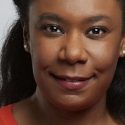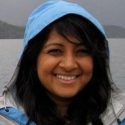Get tips on applying for science journalism fellowship Dec. 3
For the second year in a row, the University of Wisconsin–Madison will sponsor a graduate student to attend the American Association for the Advancement of Science Mass Media Science & Engineering Fellowship.
For more than 40 years, the AAAS Mass Media Fellowship has trained early-career scientists in science journalism and communication. For 10 weeks in the summer, fellows work as full-time science journalists in top newsrooms around the country, including National Public Radio, The Washington Post, WIRED and National Geographic. Past fellows have gone on to be leading journalists, educators, policymakers and researchers.
Multiple university members could attend the fellowship, as additional graduate students or postdoctoral researchers are eligible for other sources of funding in addition to the university’s sponsorship of a graduate student.
“The Mass Media Fellowship was an incredible experience,” says Jordan Nutting, a chemistry graduate student who wrote for the Milwaukee Journal Sentinel last summer as a UW–Madison-sponsored fellow. “I was surprised that writing a news article — finding the stories, interviewing sources, and writing under deadline — was a lot like doing research in the lab. I’m definitely a better writer and communicator now, but I also think I’m a better scientist.”
Nutting will lead a virtual event at 1 p.m. on Dec. 3 discussing the fellowship along with two other former fellows: Sarah Perdue, director of communications for the Department of Physics, and Eric Hamilton, science writer for University Communications. The past fellows will share what it’s like to go from the lab to the newsroom and back and what careers the fellowship can lead to. Plus, they will offer tips on how to prepare a successful application. Register for the Zoom event at go.wisc.edu/MassMedia.
Funding for a graduate student fellow comes from University Communications, the Graduate School, and the Office of the Vice Chancellor for Research and Graduate Education. Fellows are paid a $7,000 stipend and have travel covered to and from their news sites and Washington, D.C., where they receive training in science journalism at the headquarters of AAAS. Travel details will depend on public health conditions in the summer of 2021.
The fellowship runs from June 2 to Aug. 17, 2021. Applications are due by Jan. 1, 2021. Upper-level undergraduate students, graduate students and postdoctoral researchers in the sciences or engineering — or those who are within one year of completing these positions — are eligible. Students with training primarily in journalism, including science journalism, are not eligible.
For more information, contact Eric Hamilton at eshamilton@wisc.edu.
Tags: journalism, science, students



